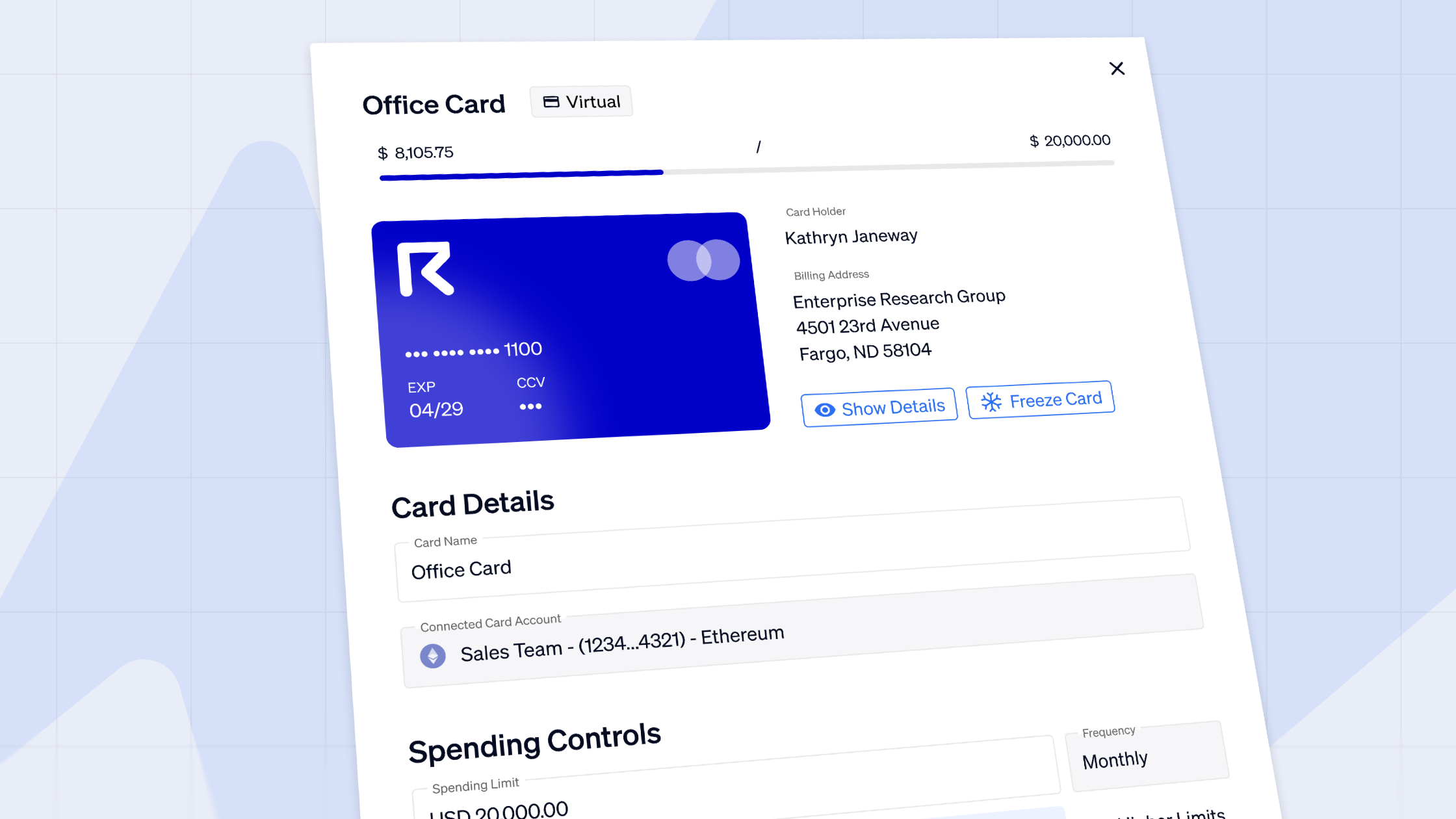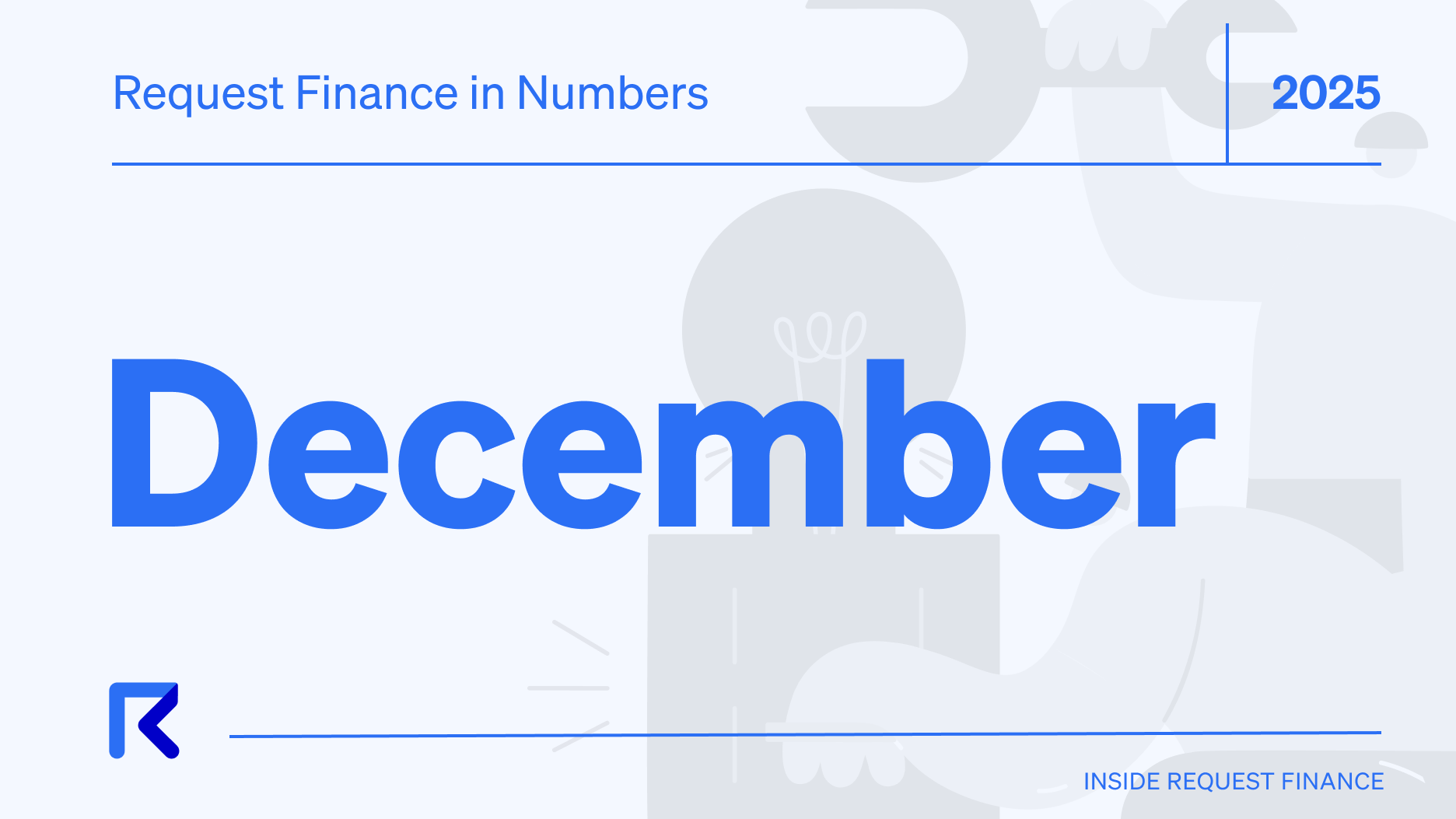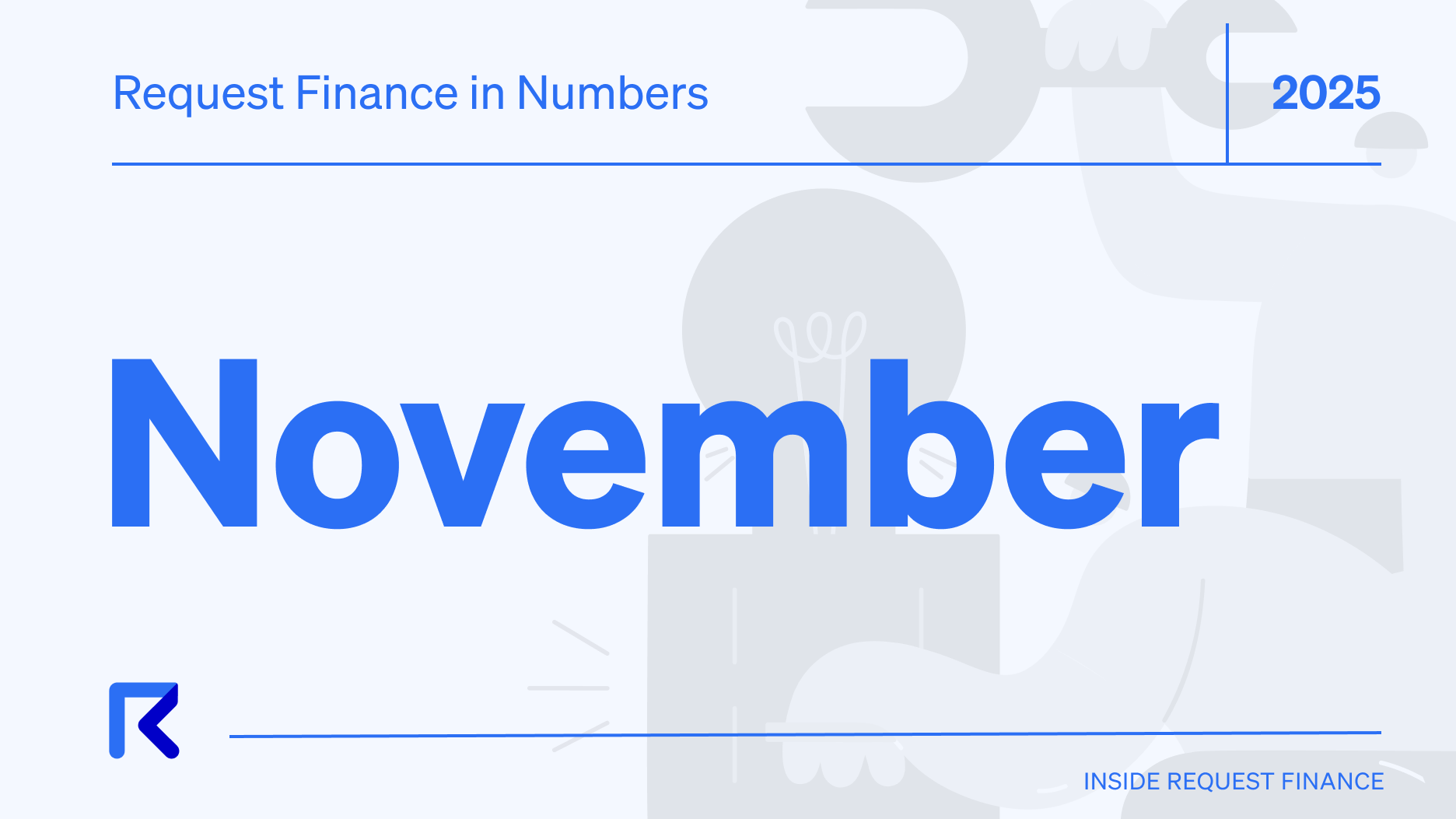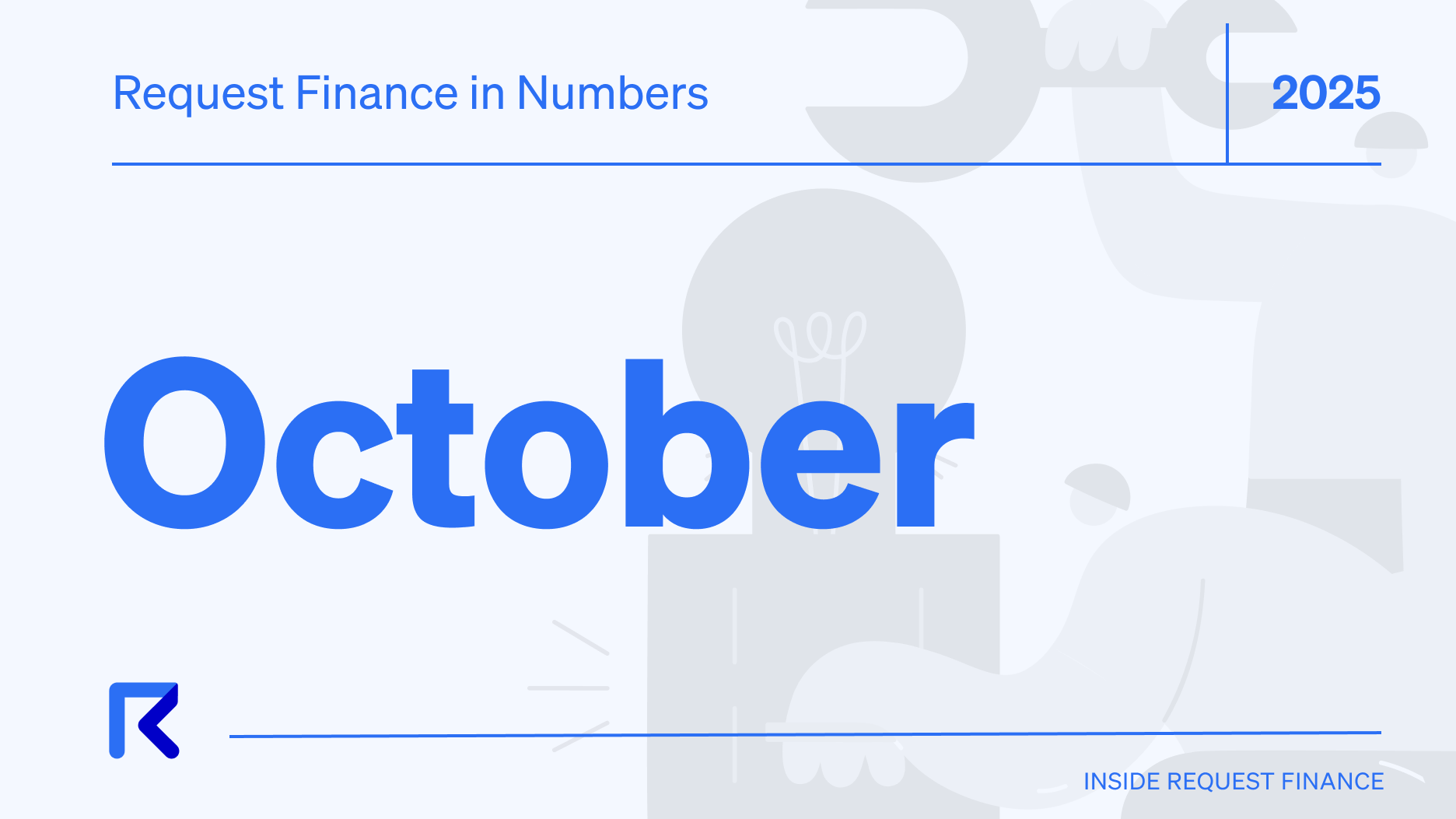Hiring in Web3: How To Benchmark Salaries For Startups
A comprehensive guide on how to benchmark salaries for diverse roles in a Web3 startup, and offering practical insights to attract top talent effectively.
.png)
Web3, characterized by decentralized and blockchain-based technologies, is creating a slew of new roles that may not have existed a few years ago. Even traditional roles like marketing are changing as engagement channels evolve.
The lack of traditional job descriptions and titles in this field adds a layer of complexity for Web3 teams when determining a web3 jobs salary benchmark for new hires. From blockchain engineers to NFT artists, tokenomics specialists to smart contract auditors, the diversity of roles is vast and growing.
The number of job applications peaked in May 2023 despite the challenging circumstances surrounding price fluctuations of crypto which was impacted by the collapse of FTX end of last year. This illustrates the rapid growth in Web3 jobs despite the bear market conditions.
Web3 talent is scarce and highly sought after, making the competition intense. Startups need to offer compelling compensation packages to attract and retain top talent.
This article aims to provide a comprehensive framework to benchmark salaries and navigate the complexities of compensation in Web3 startups.
Note: This guide should be used for informational purposes rather than as legal or financial advice.
Ready to Supercharge Your Crypto Accounting?
Stop wasting time, manually creating journal entries. Automate your accounting now, and enjoy error-free reporting
Learn how to scale your company's crypto & fiat financial operations
Your financial complexities are our specialties. Schedule your free consultation today and discover how Request Finance can transform your financial operations
Simplify crypto and fiat financial operations today
Rely on a secure, hassle-free process to manage your crypto invoices, expenses, payroll & accounting.
Establishing a competitive Web3 salary benchmark
Your company's stage of growth, the specific role you are hiring for, market cycle, and geographical location are key elements in determining compensation packages for Web3 jobs.
Early-stage vs later-stage: Founder compensation is closely tied to the company's stage. Early-stage founders and core contributors generally receive lower salaries, but often hold a significant portion of equity or allocation of the token supply, providing a potentially larger payoff as the company progresses.
Specifically, early-stage founders reported salaries approximately 30% lower than those at more mature stages. However, their higher equity stake, or token allocation in the early days of the company, aligns their incentives to the long-run success of the company.
Role and skillset: Different roles within the Web3 ecosystem come with varying levels of expertise, responsibilities, and skill requirements.
When benchmarking salaries for the first few hires for various departments in your Web3 startup, it's important to consider the specific role and its corresponding market demand.
In the self-reported salaries curated by Crypto Jobs List, web3 developer salary emerged as the highest in 2022, followed by marketing and roles revolving around security and compliance.

Here are some Web3 jobs salary guidelines for different roles:
1. Engineers and Developers
Web3 developer are highly sought after due to the technical nature of the industry. Web3 developer salary can range from $130,000 to over $200,000 per year for those with expertise in languages like Solidity. Senior developers may earn even more.
For instance, senior software engineers in Web3 projects are known to earn salaries ranging from $300,000 to $750,000.
2. Marketers
Marketing professionals in the Web3 space play a crucial role in brand building and user acquisition. Their salaries can vary widely depending on their experience level and specific marketing domain (such as SEO, content marketing, or growth marketing).
On average, marketing roles in the Web3 sector had a reported average salary of $94,000 in 2022.
3. Compliance and Legal Professionals
Due to the unique regulatory challenges in the blockchain and crypto sector, compliance and legal professionals are essential. These roles may earn over $90,000 annually, reflecting their critical function.
4. Other Roles
Roles such as community managers and human resources may command lower salaries compared to engineering and legal roles, but their importance in the Web3 space should not be understated. Community managers, for instance, could earn between $60,000 to $120,000 per year.
Additionally, project management roles in Web3 startups may command higher salaries due to the unique challenges and fast-paced environment associated with blockchain projects.
Remember, the above numbers are averages, and actual compensation may vary depending on the specific circumstances of your startup and its location.
Location-based salaries: While the web3 salary for specific roles can vary greatly depending on the industry, the experience level, and the specific skills required for the role, one can observe certain trends regarding average salaries and living costs in different countries.
The cost of living and consequently, the average wage, can vary greatly from one country to another.
Countries such as the US, Luxembourg, Iceland, and Switzerland are noted for offering top salaries in 2023.
On the other hand, average salaries in many Asian countries are lower compared to North America and Europe, with notable exceptions such as Singapore which has the highest average monthly salary in the region. Other countries such as India, China, the Philippines, and Vietnam are favored choices for cost-effective outsourcing due to their low costs and access to skilled professionals.
Web3 startups that are open to hiring globally can save costs by hiring talent from regions where the cost of living is lower than in high-cost areas like North America and Europe.
Having team members across different time zones also allows a startup to ensure business continuity during emergencies.
Challenges for salary benchmarking for global Web3 teams
Global teams across different companies face unique challenges in salary benchmarking.
Different cost of living (COL) in various locations and the lack of comprehensive datasets make it difficult to establish a standard.
In the traditional job market, resources provide salary ranges for various roles, but such resources are less prevalent in the Web3 space.
While there are great Web3-specific tools (such as Crypto Jobs List and RecruitBlock) that allows you to benchmark your salary anonymously against others in the crypto industry, they may not be ideal for several reasons:
Limited Data: Many Web3 tools tend to narrow their focus on specific regions or roles, resulting in a lack of comprehensive global data. They often exhibit a bias towards certain markets, notably the United States, in terms of salary averages and sample collection.
This can limit applicability to other countries or regions, potentially leading to misaligned compensation packages that don’t reflect the true market value in various parts of the world.
Lack of breakdown: A common shortfall of many Web3 benchmarking tools is the absence of detailed breakdowns, such as distinctions between net and gross income, specific tax burdens, and other essential financial factors.
Anonymous submissions: Most tools provide the average global crypto salary based on anonymous submissions from crypto professionals. Without verification or transparency in the data collection process, it's challenging to gauge the accuracy of the information, especially if the sample size is small.
Best resources for Web3 salary benchmarking
Given these limitations, Web2 tools are often used for Web3 salary benchmarking.
Just like any Web2 job, Web3 salaries still depend on the person’s experience, role, and location as mentioned earlier.
Web2 tools can offer:
Comprehensive insights: Covering global trends, various roles, and detailed breakdowns.
Customization: Tailored calculations and insights specific to your company's needs.
Alignment with traditional standards: Ensuring compliance and competitiveness with broader industry standards.
Here's a look at some of the best tools and how they can be utilized:
Deel Employee Cost Calculator
What It Does: Deel's calculator helps in understanding the total cost of hiring an employee, including taxes, benefits, and other expenses.
By specifying the country from which you're hiring an employee, the tool provides a comprehensive breakdown, allowing you to understand and calculate various components of compensation tailored to that specific region, including:
- Net income
- Gross income (accounting for employee and employer contribution in taxes)
- Employee tax burden
- Employer tax burden
How It Helps in Web3: It provides a clear picture of the overall compensation package, allowing Web3 companies to make competitive offers that align with industry standards and local regulations.
Figures
What It Does: Figures is a financial management tool that offers insights into various financial metrics.
How It Helps in Web3: It can be used to analyze and compare salaries across different roles and regions, helping Web3 startups to understand market trends and set appropriate salary levels.
Recruiting Agencies
What It Does: Recruiting agencies like Michael Page generate annual reports on salary benchmarks and trends in different countries.
How It Helps in Web3: These reports provide valuable insights into the salary landscape, enabling Web3 companies to benchmark salaries according to industry standards and geographical variations.
OECD Inflation Data
What It Does: Offers inflation data by country, allowing companies to benchmark salaries against inflation. The numbers are constantly updated, where you can filter by countries and time on a yearly, quarterly or monthly basis.
How It Helps in Web3: It ensures that salary offers are aligned with economic conditions, maintaining the real value of compensation packages in different countries.
Salary Calculators
What It Does: There are various websites that you could use to calculate based on specific roles, experience levels and locations. Some examples include: Payfactors, Salary Shine, Buffer Salary Calculator, GitLab Compensation Calculator
How It Helps In Web3: They provide customized salary calculations and offers a quick and easy way for you to gaugae salary expectations for various Web3 roles:
These tools and resources offer valuable insights and functionalities that can significantly aid Web3 startups in understanding the salary landscape and setting competitive compensation packages.
It's essential to recognize the significant salary gap that exists between Web2 and Web3 roles.
While the nature of job positions may not drastically change between these two domains, the compensation landscape is markedly different. In Web3, salaries can be up to 100% higher than their Web2 counterparts.
If you’re a CFO, HR manager or founder in the Web3 space, you can utilize these Web2 benchmarking tools to assess compensation standards and then strategically bump up salaries if necessary, recognizing the known salary gap.
Consider non-monetary factors
While salary remains a vital aspect of any compensation package, the Web3 space introduces unique non-monetary benefits that set it apart from traditional Web2 compensation structures.
These elements not only enhance the overall compensation framework but also align with the decentralized and innovative ethos of Web3.
These aspects align employees' interests with the success of the project, promoting employee retention and satisfaction.
1. Equity or token-based incentives
For Web3 startups, token-based compensation is a growing trend, and it's essential to consider it when planning your compensation strategy.
These incentives allow employees to participate in the project's growth and can be tailored based on criteria such as:
Role in the Company: Differentiating between individual contributors, team leads, etc.
Tenure: Recognizing the higher risks associated with joining earlier in the project's lifecycle.
Salary: Balancing the proportion of salary with equity or tokens.
Still, determining the appropriate amount of equity or token-based incentives to offer each employee can be a complex task. It’s hard to find benchmarks as public information on these incentives are scarce.
This is where online resources and communities become invaluable:
Specialized Guides and Tools
These guides include calculators, methodologies, and industry-specific data that can be applied to Web3 projects.
For example, Carta’s Equity 101 Guide provides structured frameworks for equity compensation.
If you’re a Web3 company looking to distribute tokens to your employees, there are token vesting software applications such as Magna, Liquidfi, and Presail available.
These resources helps you complexities of equity and token-based incentives, offering actionable insights tailored to the Web3 space.
By understanding trends and market standards, you can craft compensation packages that align with both individual project goals and broader industry norms.
Specialized communities for Web3 finance & operations professionals
Specialized communities tailored for finance & operations professionals in the Web3 space serve as vital hubs for collaboration and learning.
What sets these communities apart is their ability to provide access to insights, best practices, and real-world examples of token and equity compensation structure – information that may otherwise be elusive or confined to private channels.
For example, Web3 startup founders and CFOs exploring token-based compensation can benefit from joining the Web3CFO Club. With a network of over 630+ Web3 finance and operation leaders, this club offers a unique opportunity to share resources, build connections, and gain insights specific to the Web3 financial landscape.
Similarly, Venture Capitals like Balderton and Xange foster communities that cater to HR professionals within their portfolio companies.
These communities act as specialized knowledge-sharing platforms, where information on token and equity compensation is exchanged, discussed, and refined.
2. Remote work options
With the rise of distributed teams and remote work arrangements, offering flexibility in terms of remote work can be a valuable perk for Web3 professionals.
Pivoting to the work culture, remote work has pervaded the industry, with the majority of the companies embracing a fully distributed workforce. This trend not only underscores the industry's adaptability but also highlights its commitment to employee flexibility and global collaboration.
Request Finance allows globally dispersed and remote-first Web3 teams to automate salary payments, where CFOs schedule recurring crypto salary payments across multiple wallet addresses with ease. This approach simplifies financial operations and compliance while keeping the workforce informed with real-time payment status updates.
What are the payment preferences of Web3 enterprises?
Now that you know the factors to consider when benchmarking salaries for your Web3 startup, it brings us the next question: what are the payment preferences when it comes to crypto payroll?
Crypto payroll is increasingly popular among businesses as they are much cheaper and faster than traditional fiat settlement rails.
As a crypto payroll app that has processed nearly $350m in total crypto payments volume, USD-denominated stablecoins as a whole continue to be a popular choice for enterprise crypto payments, making up 60% of the crypto payments on Request Finance.

Stablecoins, which are pegged to the value of USD, stand out due to their resilience against foreign exchange volatility and price fluctuations of cryptocurrencies.
This stability shields both businesses and their employees from unexpected currency value fluctuations that can impact their net income.
By paying employees in stablecoins, businesses can take advantage of the benefits of crypto payroll while minimizing the risk of exchange rate volatility: offering a smart, secure, and innovative approach to employee compensation.
Evolving with Web3
In the end, hiring in Web3 is about much more than just understanding the technology.
It's about adapting to an evolving landscape, recognizing the unique skillsets associated with Web3 roles, and offering competitive compensation packages to attract the best talent.
Benchmarking salaries in this space can be a challenge due to the lack of standardized roles and volatile market conditions.
By staying abreast of industry trends, understanding the value of diverse compensation packages, and using available data, startups can successfully navigate the Web3 hiring landscape.
Want to learn how to simplify your global payroll in crypto? Get your free consultation here.
Crypto finance tips straight to your inbox
We'll email you once a week with quality resources to help you manage crypto and fiat operations
Trending articles
Get up to date with the most read publications of the month.
Our latest articles
News, guides, tips and more content to help you handle your crypto finances.











